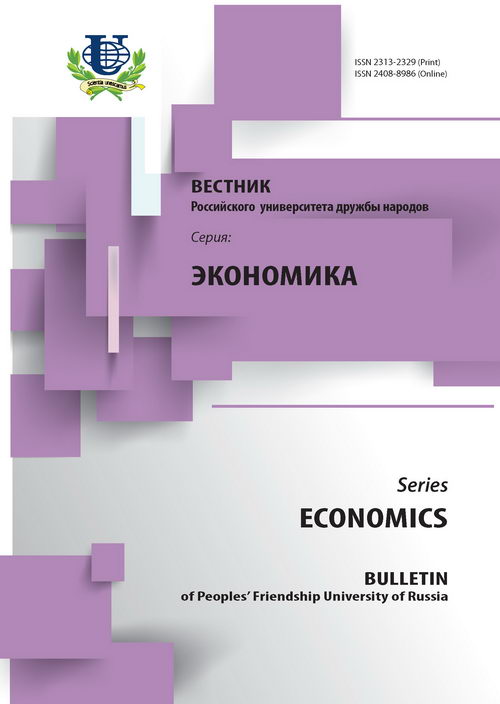POVERTY ERADICATION IN DEVELOPING COUNTRIES: EVOLUTION OF CONCEPTS
- Authors: Massarova AR1
-
Affiliations:
- Peoples’ Friendship University of Russia
- Issue: No 4 (2015)
- Pages: 51-63
- Section: ARTICLES
- URL: https://journals.rudn.ru/economics/article/view/12976
- ID: 12976
Cite item
Full Text
Abstract
The article traces the evolution of economic thought concerning improving welfare and poverty reduction in developing countries; analyses the experience of economic policy implementation in relation to poverty reduction in countries of different socio-economic types. The analysis revealed the conformity and differences between theoretical models and actual practice aimed at improving the quality of life through the active involvement of the poor in economic processes. Typology of theoretical approaches to poverty reduction (eradication) was formed by priority instrument of social and economic policy and the time of their occurrence.
References
Supplementary files














